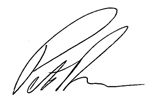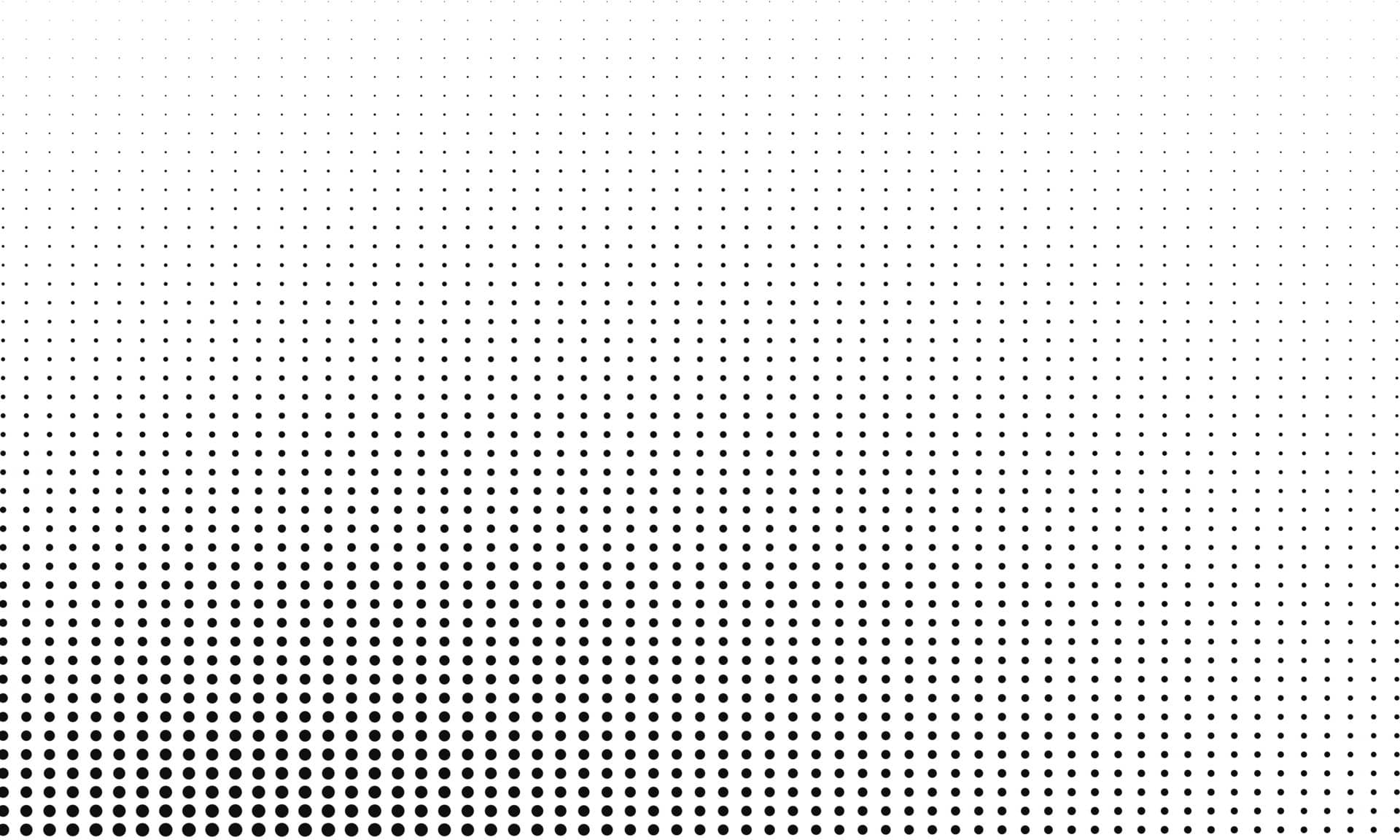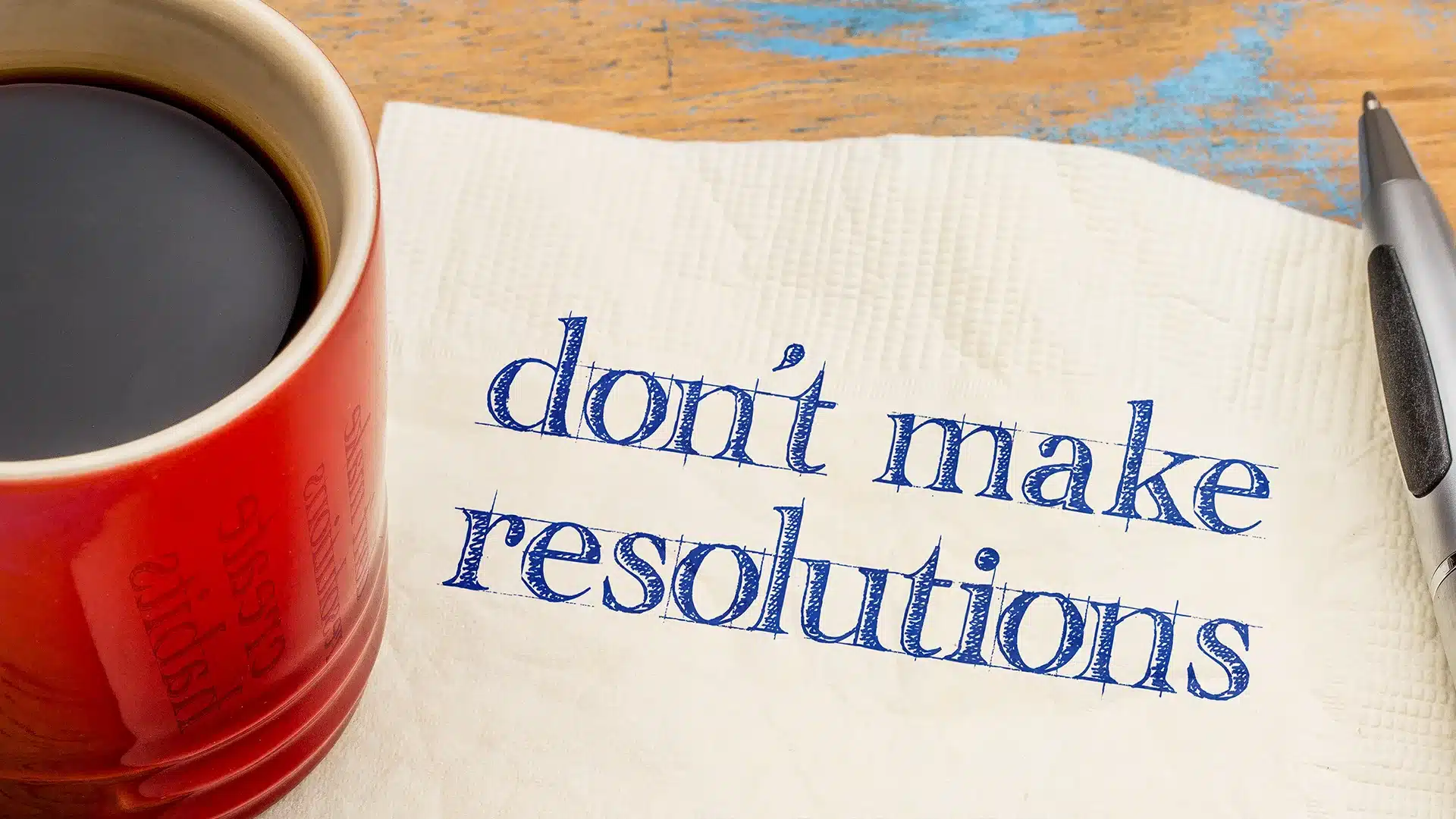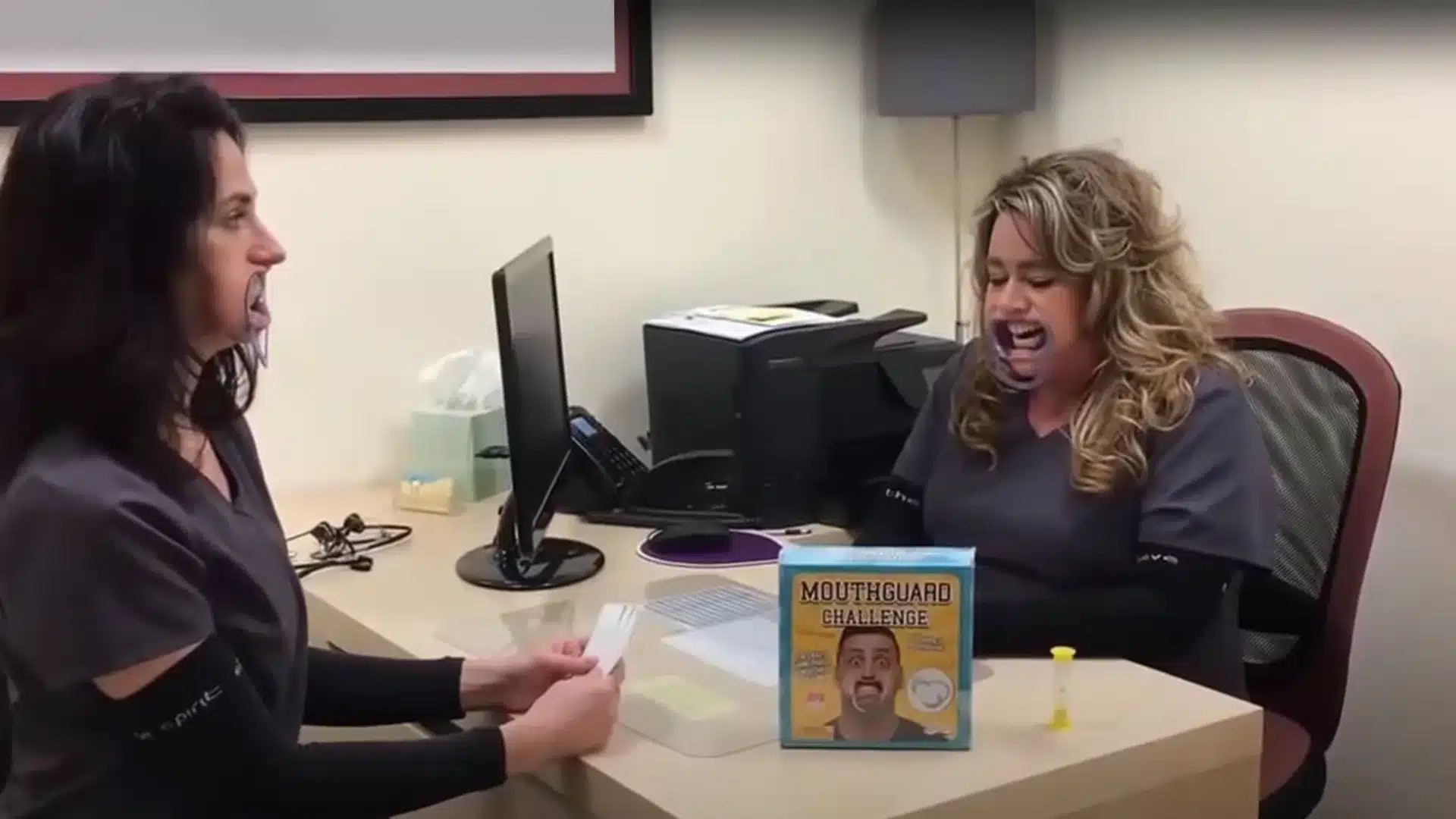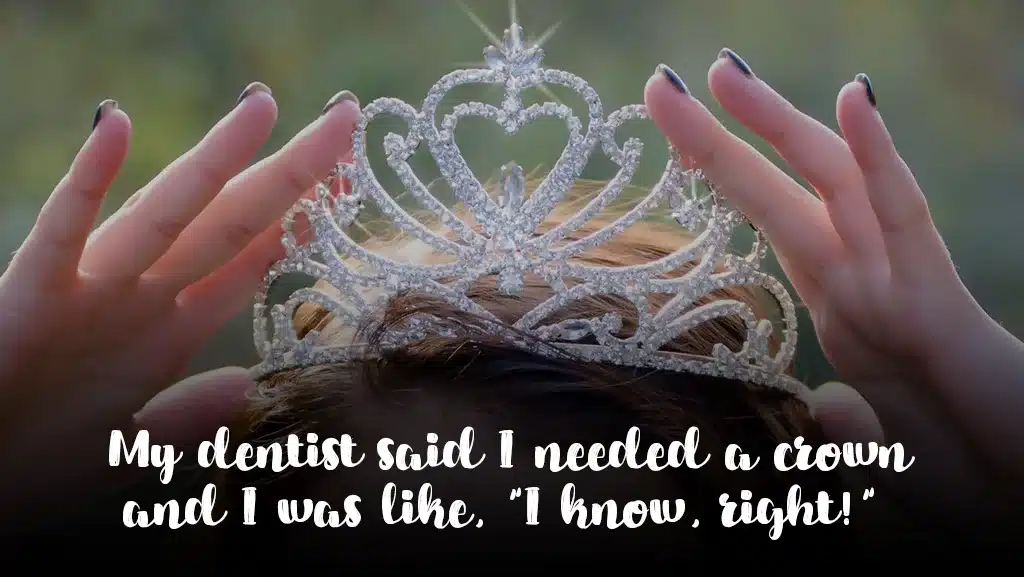I gave up on compiling a list of New Year’s resolutions a few years ago when my wife (and now employees) started making them for me . . . lose weight – stop leaving half finished cups of coffee all over the office – quit picking up and drinking other people’s cups of coffee in the office – write insurance narratives as soon as Diane asks for them – don’t build up a collection of travel mugs in the central console of my car until there are none left in the kitchen cupboard at home -load the dishwasher the way it’s “supposed” to be done for maximum space efficiency. I personally think that these all fall under the category of ‘nagging’, but apparently that’s something else I need work on in 2017 –listening.
January 1st is actually a great time to start implementing new habits – the days are shorter, colder, and darker, so the usual distractions aren’t there to provide an excuse as to why you “can’t” do something (except maybe go for a run after work, “cold” and “dark” being strong deterrents). Most New Year’s resolutions tend to be fairly predictable, they would be an easy round on Family Feud; lose weight, quit smoking, go to the gym…
We thought it might be fun to give you the Drews Dental Services Family Feud style survey answers for Dental Resolutions!
Name something you wish everyone would put on their New Year’s resolution list
We asked 2 dentists and the top 7 answers are on the board!
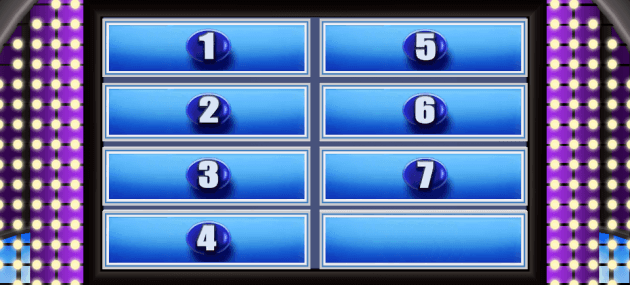
Okay, they’re actually in this post, in no particular order . . .
1. Brush, Brush, Brush
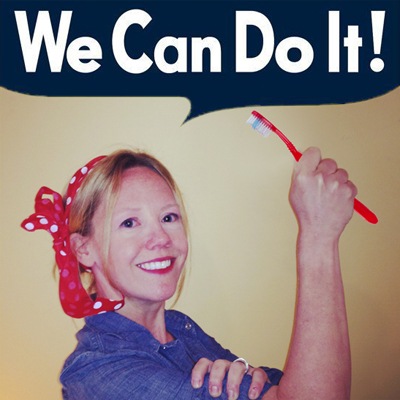
Three times a day is an ideal goal. I am going to assume that you already brush your teeth twice a day, if not, start your resolution list here. Brushing is how you remove food and bacteria – it’s your first defense against everything that could go wrong from cavities to gum disease. Can chewing gum clean your teeth? It helps, but it doesn’t replace brushing. Do you need to brush all your teeth? Nope, only the ones you’d like to keep.
Consider trading in your manual for an automatic! While it requires a different type of technique, an electric toothbrush generally takes less time and effort to use than a standard one. It also prevents you from scouring away at your teeth like they’re the kitchen floor (another bad habit to stop in 2017), because while you can re-tile the floor, you can’t re-enamel your chompers.
If you use a regular toothbrush, resolve to replace it more frequently than you replace the batteries in your smoke detector.
2. Be the Boss of Your Floss
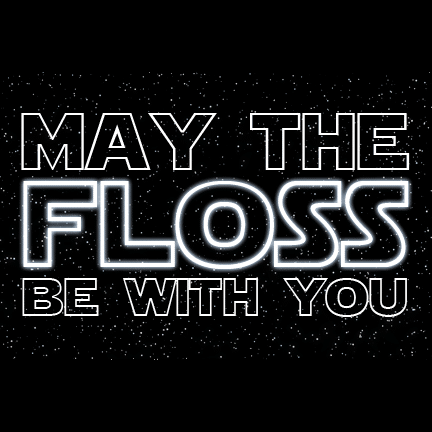
It’s really important, despite recent hoopla, to be the boss of your floss. Beyond brushing, the next biggie that we encounter on a daily basis sounds something like this: “Well, I floss maybe once a week/month/right before coming in for my next cleaning.”
Flossing literally takes about 90 seconds to do, which still gives you 23 hours, 58 minutes and 30 seconds left in your day to procrastinate on other stuff.
The truth is, 40% of your tooth’s surfaces are not cleaned by a brush, so unless you decide to give up eating, this is one of the best ways to decrease bacteria in your mouth, which means avoiding bleeding gums, bad breath, periodontal disease, losing your teeth and becoming a social pariah.
3. Start Getting Manicures
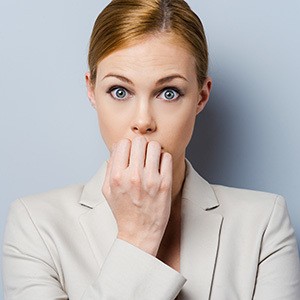
Name something people do with their fingernails. The top answer on Family Feud? “Bite them!” Here’s the thing, the sole purpose of your teeth are to aid in the breakdown of food so that you can fuel your body sufficiently.
We do not need to use our teeth for manicures, to build homes, make shaved ice, remove clothing tags, or to open containers because the universe invented ice machines, scissors and fingernail clippers. See please don’t use your teeth for more information on that front.
Using your teeth for anything other than biting into a BLT sandwich means risking chips, cracks, breaks and fractures. In the event any of those things happen – the universe also invented dentists, so we’re here to help you out. We’d just rather you not chip a tooth trying to pop a top on a bottle of your favorite lager.
4. Don’t Neglect Your Relationship
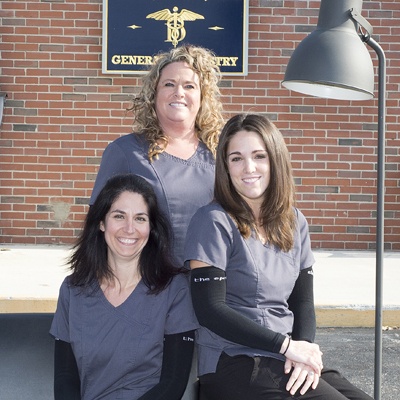
Girl’s weekend in the city, guy’s ski trip, date night; people talk about these times as being sacred and important for your overall health, well being and relationships. The same goes for that twice (sometimes more) yearly date with your dental hygienist.
Think of it as an opportunity for us to start you back with a ‘blank canvas’- especially if you haven’t been as diligent with home care. It also means that we can catch any potential issues before they become big, painful problems.
We’re not asking you to bring us flowers and chocolate (unless they are those Lindt truffle balls), but come and see us regularly, try to floss and brush between your appointments, it shows you care.
5. Thou Shalt Not Sip, Swish or Snack
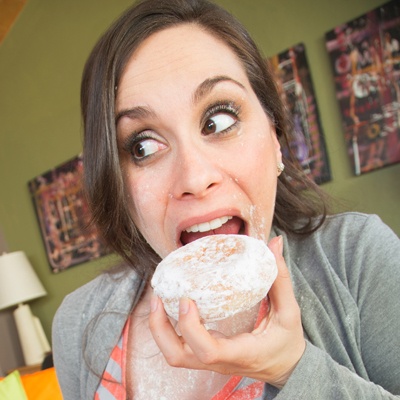
Sugar and New Year’s resolutions seem to go hand in hand, whether it’s for diet or decay, consuming less is always a good goal. While there is no question that sugar can do a number on your teeth, it is the act of snacking that is the real problem.
Constantly dosing yourself with sugar stimulates the acid in your mouth, which etches away at the enamel on your teeth. So if you sip an iced coffee, or can of coke, throughout the course of the afternoon you are creating an acid war in your mouth until about 20 minutes after you’ve taken your last and final swig.
To mitigate the impact, consider a rinse after indulging in sugary treats, and when it comes to sipping, choose water—a simple yet effective way to wash the dentist away.
6. You Can’t Smoke ‘Em if You Don’t Got ‘Em

You knew it was coming, one of the most popular Family Feud answers about what to give up, in general, for the New Year.
If the prospect of lung cancer and emphysema aren’t enough of a motivator to prompt you to quit, then allow your caring and compassionate dental professionals to tell you about bad breath, yellow teeth, periodontal disease (puffy, bleeding gums that are disappearing faster than the polar ice caps) and oral cancer.
Kicking the habit isn’t easy, but think about all the money you’ll save on breath mints, whitening toothpaste, and dental treatments. A healthier smile and a fatter wallet—sounds like a winning combination. If you’re interested, there are several free resources in Maine (and the US):
- Maine QuitLine: This is the best starting point for Maine residents. It offers free, confidential phone and online support, including coaching, web tools, and medication assistance.
- Maine Tobacco HelpLine: Another state-funded, free resource offering phone counseling and treatment plans.
- Prevention for ME: This organization provides tobacco prevention and cessation resources, including workshops and educational materials.
- Smokefree.gov: The official quit smoking website of the U.S. government. It offers comprehensive information, tools, and resources for quitting.
- National Cancer Institute’s Smoking Quitline: Free, nationwide phone service provides quit coaching and support in multiple languages. Call 1-800-QUIT-NOW (1-800-784-8669).
- Freedom From Smoking program (from the American Lung Association) offers free and confidential quit smoking help.
7. Don’t Wait Until the Last Minute

If Dr. Lake or I have recommended a restorative procedure (a crown for example), it is because we want to save you the pain and expense of an emergency situation that could involve swelling, sleepless nights and not being able to eat. Plus, who wants to come in to the dental office on a weekend or a holiday? Not me.
An ounce of prevention really is worth a pound of cure. By the time you’re in a heap of pain, it’s very likely you’re going to require much more extensive treatment.
What could have been a small cavity (filling) becomes compromised pulp (root canal), for example.
In this U.S. News & World Report article about the cost of reactive care, Elizabeth Renter aptly points out that “Neglecting oral health could be a costly exercise in denial” and “preventive care can be expensive, but it comes at a far lesser price than treatment after something goes wrong.” By prioritizing regular check ups, cleanings, and proactive measures, you can spare yourself the burden that often accompanies more extensive dental treatments. To use another cliché, a stitch in time saves nine—especially when it comes to your teeth.
Making Habits Instead of Resolutions
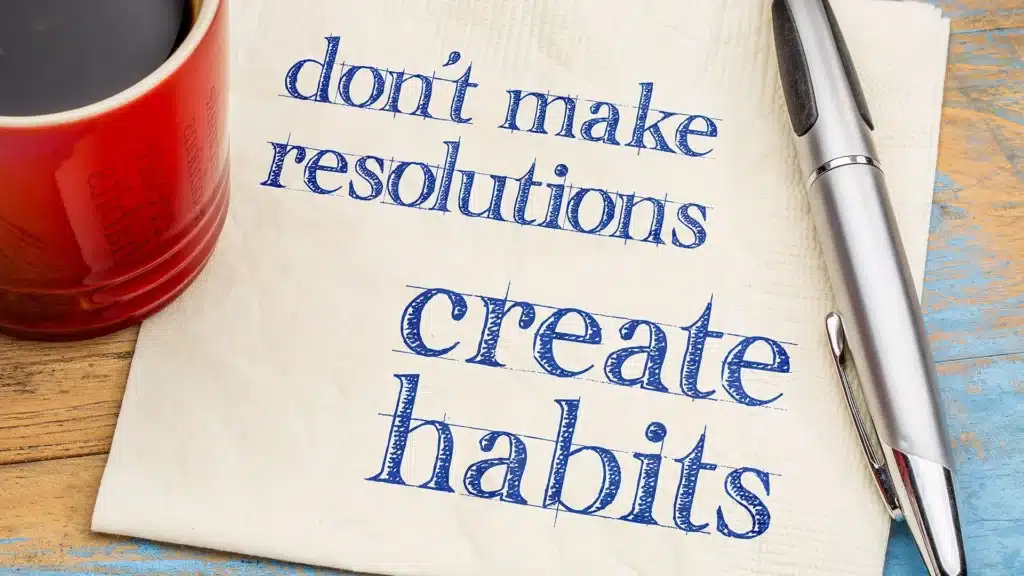
It only takes about two weeks to surrender to the pressure from daily nagging, perhaps about three weeks to make something a habit. Regardless of the time involved, when you engage in a behavior consistently, eventually it becomes automatic and you no longer have to remind yourself to do it because it is just part of the routine. Make 2017 the year you make good oral hygiene a habit…
Actually, you know you can start creating habits before you ring in the new year, right? Give us a call at (207) 782-5308 or contact us to start working on #4.
